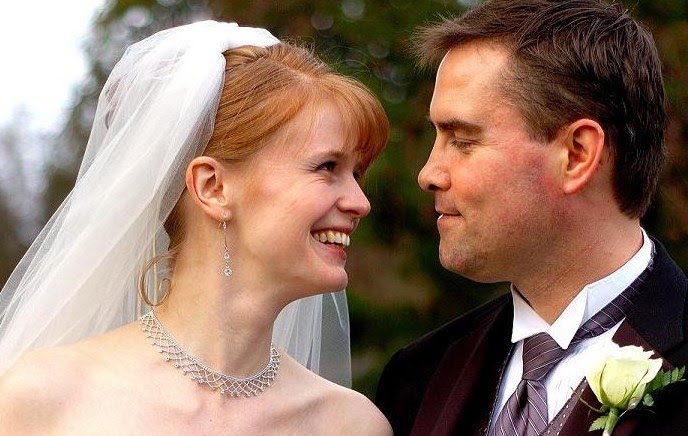One of the dates you never quite forget is the date that you first heard the doctor mention the word cancer. Tyler's cancerversary was February 19th. As I have done before, I wanted to mention a few warning signs of blood cancer. We found that both Hans and Tyler had experienced several of the same symptoms before being diagnosed, but we hadn't known just what they were at that time.
1. Are you tired? Leukemia causes fatigue because the increased production of white blood cells (WBCs) crowds out the red blood cells in your blood volume. Red blood cells carry the oxygen to your cells and having fewer of them can cause noticeable fatigue or breathlessness. Tyler just assumed he was getting old (at 40 after an incredibly active life). Check with your doctor before making the same assumption about any fatigue you might be experiencing. Tyler was working a physical job on the grounds crew at Children's Hospital and playing soccer. I remember him coming home from soccer games in the last few months before diagnosis and shaking and shivering uncontrollably for a long time. It wasn't a reaction to cold, but seemed to be a reaction to the exertion. It was the first symptom I noticed as his fiancé and prompted me to suggest a doctor's visit. Sadly, it took a few more months before that doctors visit happened. Could that time have made a difference in the ultimate war against the disease? I'll never know...
2. Have you lost weight? Are you eating as much as ever, but your clothes are getting baggy and you haven't been able to find a reason? Unexplained weight loss (more than a few pounds) is a common symptom of many illnesses and should prompt a visit to the doctor.
3. Do you (or your child) have a tendency to bleed or bruise easily? This is a common symptom of childhood leukemia. A youngster's skin may be peppered with tiny red dots. While going through treatment, we learned that the little red dots can be a sign of low platelet counts. Platelets are the blood part that help your blood stick together and clot. When your platelet count is low, you are at risk for bleeding too much from minor injuries.
4. Check your pallor. Have your cheeks lost their rosy glow? This may be a symptom of leukemia. An increase in WBCs can crowd out red blood cells, making you appear anemic.
5. Examine your lymph nodes. Feel under your armpits. Do you feel any lumps or bulges? Feel under your throat, where your jaw meets your neck, for lumps or bulges. Swollen lymph nodes are a possible sign of leukemia or other illnesses.
6. Evaluate yourself for unexplained chronic infections that never seem to go away. Even though your body is producing more WBCs, which are the body's infection fighters, the WBCs of a person with leukemia are immature and unable to fight off diseases. The best description I have heard of this was comparing the WBCs to either toddlers (not functional at all in the adult world of fighting infections) or teenagers (only partially functional at fight infections). Tyler was finally diagnosed after going to see the doctor about the "worst cold he'd ever had".
7. Check for an enlarged spleen. Lay down in bed and place the palm of your hand on the left side of your abdomen, below your rib cage. Feel for a lump or mass. This may be a sign of leukemia and put you at risk for internal bleeding if injured. Tyler definitely had this symptom and was unable to play soccer until the spleen returned to normal size. It can also manifest itself as abdominal fullness.
8. Keep track of unusual night sweats or bone pain. These are often signs of your body attempting to fight an internal war against the cancer.
9. Pay attention to your body's messages. Tyler's doctor asked him at diagnosis how long it had been since T had felt 100% normal. When he stopped and thought about it, Tyler said it had been about 1.5 - 2 YEARS. Imagine how an early diagnosis (from regular check ups or even a doctor's visit when started feeling some of the symptoms that weren't normal) might have changed the outcome of our battle.
New treatments are being discovered all of the time and an early diagnosis gives you the strongest chance at joining the ranks of survivor. Please see your doctor regularly for check ups and in response to any of the symptoms listed above.
For my readers that have been through cancer diagnoses themselves or with a loved one, please add your own items to the list by posting comments on this message. Together we can help others start treatment at a time when they can be successful.


No comments:
Post a Comment